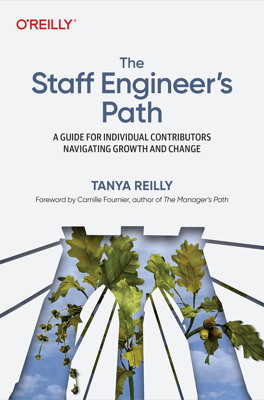What Would You Say You Do Here?
The Role of a Staff Engineer
Staff engineering roles vary widely across companies, both in expectations and duties. Unlike traditional senior engineers who tend to focus solely on technical tasks, staff engineers often undertake leadership activities and influence broader organizational decisions. They are typically enlisted for their technical expertise but are also expected to engage in leadership without necessarily managing people.
What Defines a Staff Engineer's Work?
- Dual Tracks: Modern companies frequently offer a dual-track career progression, allowing engineers to advance either into management or through a technical track which maintains focus on deepening their expert skills.
- Job Titles and Influence: Job titles are significant as they confer respect and authority, and help in setting expectations externally and internally within the company.
- Technical and Leadership Requirements: The role necessitates a blend of strong technical competencies and leadership capabilities, requiring interaction and influence over wide-ranging organizational scopes.
Importance of Big-Picture Thinking
Staff engineers play a critical role in making overarching technical decisions that shape an organization’s strategy and direction. They are expected to: - Understand and integrate broad organizational needs alongside technically detailed information. - Look beyond immediate team boundaries to consider wider business impacts, advocating for decisions that benefit the organization as a whole. - Anticipate future challenges and prep the groundwork for smooth technological evolution.
Integration Across Teams
Staff engineers often navigate projects that span multiple teams, ensuring that disjointed efforts align coherently to meet common organizational goals. They are not typically managers but are essential in steering projects toward high engineering standards and ensuring proper integration of various technical facets.
Being a Positive Influence
Beyond technical skills, staff engineers significantly influence the culture and practices within their teams. They mentor, set examples of good engineering practices, and uphold high standards in software development. Their role is not just to contribute technically but also to enhance the functional and ethical standards of their projects and teams.
Role Longevity and Autonomy
Staff engineers are expected to be autonomous, proactively identifying and tackling high-impact projects without explicit directives. Their roles assume an expectation of creating more value through strategic involvement rather than routine engineering tasks.
Aligning Role with Organizational Expectations
- Role Clarity: It’s crucial for staff engineers to have a well-understood and agreed-upon role within their organization. This includes clear communication about expectations, responsibilities, and the scope of influence.
- Documenting the Role *: Writing down one’s understanding of their role and discussing it with their manager helps in aligning perceptions and expectations, ensuring that staff engineers can work effectively towards recognized goals.
Overall, the position of a staff engineer is characterized by a blend of deep technical expertise, broad visionary outlook, and influential leadership, contributing significantly beyond mere coding or technical tasks to shape substantial organizational outcomes.
